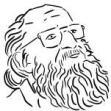Freirean hope as educational construct for teacher education in South Africa
DOI:
https://doi.org/10.35699/2237-5864.2021.34929Keywords:
Educational philosophy, Paulo Freire, Pedagogy of hope, Teacher trainingAbstract
This article argues that South African teacher education and development policy lack an explicit philosophy of education and corresponding pedagogy that promote transformation and equality. After an analysis of some works by Paulo Freire, it is argued that it is in a Freirean philosophy of education and in a pedagogy of hope that the praxis of teacher education establishes the notion of teachers as unfinished beings and agents of hope. This article offers an opportunity to imagine what Freire’s Pedagogy of hope (FREIRE, 1994) could contribute to the dialogue regarding the policy, gazetted in 2011 and revised in 2015, on the minimum requirements for teacher education qualifications in South Africa. The fundamental role that teacher education institutions can play in contributing to the transformation of education is defended, particularly if the philosophy of Freirean education and a pedagogy of hope are compromised. The article concludes with an attempt at re-orientation of teacher education policy.
Downloads
References
DEPARTMENT OF EDUCATION (DoE). National Education Policy Act: Norms and standards for educators. Pretoria: Department of Education, 2000. Disponível em: https://www.gov.za/documents/national-education-policy-act-norms-and-standards-educators. Acesso em: 04 nov. 2021.
DEPARTMENT OF EDUCATION (DoE). National Policy Framework for Teacher Education and Development in South Africa. Pretoria: Department of Education, 2006. Disponível em: https://www.gov.za/documents/national-policy-framework-teacher-education-and-development. Acesso em: 04 nov. 2021.
DEPARTMENT OF HIGHER EDUCATION AND TRAINING (DHET). Policy on the minimum requirements for teacher education qualifications. Pretoria: Department of Higher Education and Training, 2011.
DEPARTMENT OF HIGHER EDUCATION AND TRAINING (DHET). Policy on minimum requirements for programmes leading to qualifications for educators and lecturers in adult and community education and training. Pretoria: Department of Higher Education and Training, 2015a.
DEPARTMENT OF HIGHER EDUCATION AND TRAINING (DHET). Revised policy on the minimum requirements for teacher education qualifications. Pretoria: Department of Higher Education and Training, 2015b.
DEPARTMENT OF HIGHER EDUCATION AND TRAINING (DHET). Policy on minimum requirements for programmes leading to qualifications in higher education for early childhood development educators. Pretoria: Department of Higher Education and Training, 2017.
DEPARTMENT OF HIGHER EDUCATION AND TRAINING (DHET). Annual implementation progress report: Teaching and Learning Development Capacity Improvement Programme. Pretoria: Department of Higher Education and Training, 2018.
FREIRE, Paulo. Pedagogy of hope: reliving pedagogy of the oppressed. New York: Continuum, 1994.
FREIRE, Paulo. Pedagogy of the heart. New York: Continuum, 1997.
FREIRE, Paulo. Pedagogy of freedom: ethics, democracy, and civic courage. Lanham: Rowman & Littlefield, 1998.
FREIRE, Paulo. Pedagogy of indignation. Boulder: Paradigm, 2004.
HIGGS, Philip. African philosophy and the transformation of educational discourse in South Africa. Journal of Education, Scottsville, v. 30, p. 5-22, jan. 2003. Disponível em: https://www.researchgate.net/publication/254767486_African_Philosophy_and_the_Transformation_of_Education_Discourse_in_South_Africa. Acesso em: 04 nov. 2021.
IRWIN, Jones. Paulo Freire’s philosophy of education: origins, developments, impacts and legacies. London: Continuum, 2012.
KIRYLO, James David. Paulo Freire: the man from Recife. New York: Peter Lang, 2011.
LE GRANGE, Lesley. (South) African(a) philosophy of education: a reply to Higgs and Parker. Journal of Education, Scottsville, v. 34, n. 1, p. 143-153, 01 jan. 2004. Disponível em: https://journals.co.za/doi/10.10520/AJA0259479X_127. Acesso em: 04 nov. 2021.
MORROW, Wally. Learning to teach in South Africa. Cape Town: HSRC, 2007.
NATIONAL PLANNING COMMISSION. National development plan: Vision for 2030. Pretoria: National Planning Commission, 2011.
PARKER, Ben. Back on the chain gang: some difficulties in developing a (South) African philosophy of education. Journal of Education, Scottsville, v. 30, p. 23-40, 2003.
SOUTH AFRICAN COUNCIL FOR EDUCATORS (SACE). Draft professional teaching standards. Pretoria: South African Council for Educators, 2018.

Downloads
Published
How to Cite
Issue
Section
License
Copyright (c) 2021 Beryl Verna Botman

This work is licensed under a Creative Commons Attribution 4.0 International License.
Authors who publish in this journal retain the copyright and grant the journal the right of first publication, with the work simultaneously licensed under the Creative Commons Attribution License which allows the sharing of work with acknowledgment of authorship and initial publication in this journal.
Authors are authorized to take additional contracts separately, for non-exclusive distribution of the version of the work published in this journal (e.g. publish in institutional repository or as a book chapter), with acknowledgment of authorship and initial publication in this journal.
Open access policy:
Revista Docência do Ensino Superior is an Open Access journal, which means that all content is available free of charge, at no cost to the user or their institution. Users may read, download, copy, distribute, print, search, or link to the full texts of the articles, or use them for any other legal purpose, without seeking prior permission from the publisher or author, provided they respect the license to use the Creative Commons used by the journal. This definition of open access is in line with the Budapest Open Access Initiative (BOAI).























